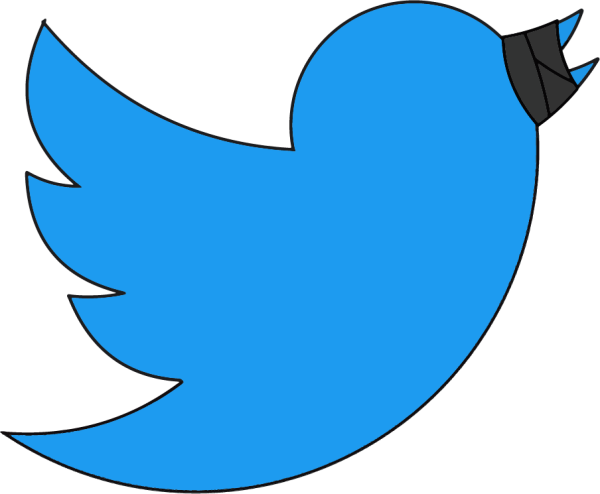The Rise of Social Media Apptivism – Staff Stance
August 21, 2019
The emergence of social media has encouraged rising patterns of engagement and activism. Prior to the advent of social media, platforms which shared ideas existed on obscure blogs that could be difficult for readers to find. Through the creation of sites such as FaceBook and Instagram, ideas are granted a wider reach and audience.
Over time, social media, which was once viewed as simply a platform for sharing information about your summer vacation or your dining choices, became a digital battleground for politicians to court young voters. While much of social media does consist of these casual posts, the applications of social media expanded. Political organizations, activist groups, and countless other interest groups began utilizing these platforms to raise awareness about a host of issues relevant to them. Social media activism has allowed an individua’s’ reach to dramatically increase, opening political discussion. As a result, this made exposure to injustice rampant, as likes and shares allowed passionate individuals to spread the word about their cause. This stimulated a considerable reach to social activism.
The most important effect to social media activism is the opportunity it provides to aspiring young activists to participate in a system dominated by money and influence. Social media activism has allowed for those who the system has locked out the chance to make their voices heard on a range of issues typically relating to social inequity. Due to judicial precedent which favored the rise of political action committees (PACs), the current political system became primarily influenced through heavily funded and loosely regulated PACs and other prominent lobbying groups which dominate the political realm through vast finances and connections.
The financial elite dominate the political system, pouring millions into Congress and influencing national laws. The influence of money can be seen in expensive congressional elections, and considering that elections need resources to win, the monetary means to participate in politics grant a clear advantage in determining the political landscape. It can be argued that the conversation around where the country is headed is ruled by the elites of society with monetary means, and their actions show little interest in the thoughts and words of marginalized communities that are directly impacted by societal inequity, such as women, African Americans and the LGBT+ community. Many marginalized communities have utilized social media to inform and create support for their struggle.
Despite the fact that a great deal of young American citizens tend not to vote at elections, the expansion of political engagement should be seen favorably, especially given the glaring lack of political participation. Social media activism grants anyone with a capable device the opportunity to speak out and be heard.
Through this engagement, various issues in society are finally brought front and center in many people’s minds. Without the awareness brought about by social media activism, a majority of Americans would have little clue who Eric Garner was or why members of the African American community feel as if they still can’t breathe. Thanks to social media activism, many are exposed to countless forms of discrimination and harrasment felt on behalf of marginalized communties everyday, most notably with the powerful #METOO movement and its sweeping examination of the rampant sexual harassment and assualt faced by women daily. It was also social media activism, and the hashtag #EnoughIsEnough, that helped give young people a larger voice in the gun control debate. In addition, social media activism has helped the public to hear about pressing matters that demand public attention such as school shootings, international crises, internal systemic injustices, or political turmoil and corruption of the American government exposed by whistleblowers. Social media activism’s advent has expanded the average person’s ability to garner change through direct engagement with the American public.
Change is something which is hard to quantify. For some individuals, progress is thought to takes the form of national legislation which directly combats the rampant injustices of modern society. To members of the activist community, helping people think about social issues in a new light is viewed as a miniscule victory in the fight for social justice. However, the spectrum of change is one that highlights the versatility of activism on social media and is a testament to its success. The #BlackLivesMatters movement generated its massive support in the creation of a new argument around police brutality which existed prior to the movement. It was through video recording of police officers violently assaulting African Americans that our country decided it would reconsider incidents and cast suspicion on law enforcement and the legal system.
Few believe that merely reposting is enough to go about creating legislation that change in society often demands. While social media activism offers a greater reach to matters one may care about, it also lacks the effects traditional activism carries. Aspiring activist should always pair the two to generate the greatest depth to their cause. When confronted with the limiting realities of the current political landscape in which money reigns supreme, the act of reposting or sharing your thoughts can be the catalyst that generates awareness about a societal injustice. It is through sharing and distributing information that activists garner the audience to create the support needed to combat institutional and societal problems. It is from there that individuals can set about organizing rallies and marches, lobbying congressional officials and performing other works generally regarded as traditional activism.







